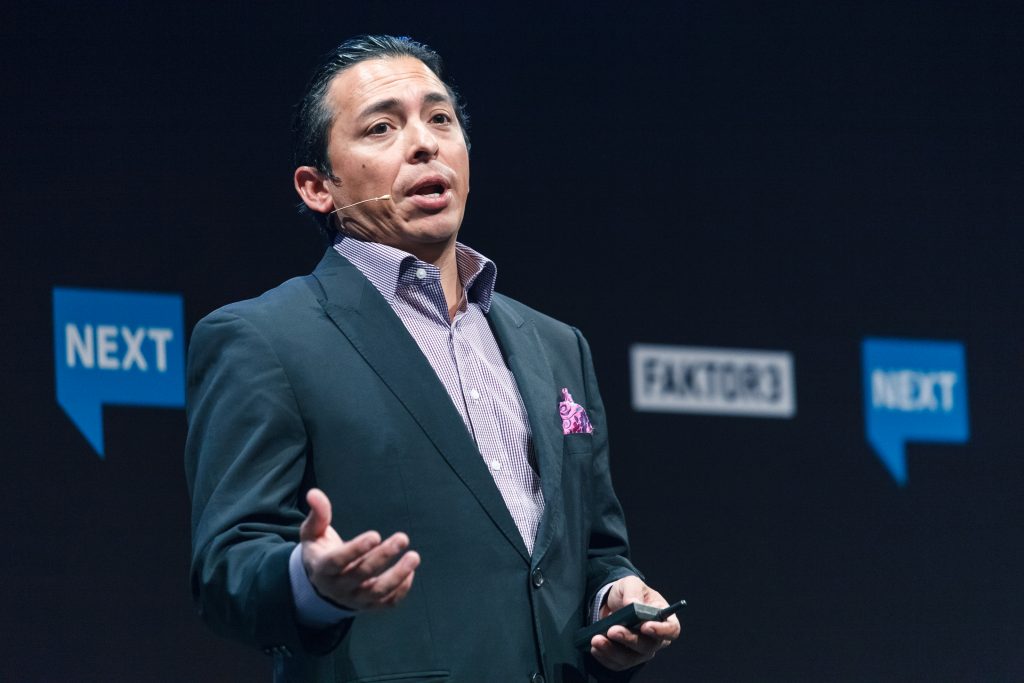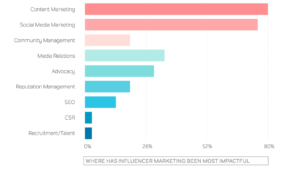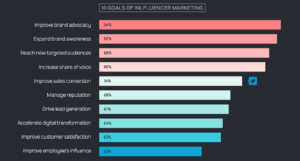by TJ Kiely, Falcon.io
Before you pay a Kardashian $250,000 for a sponsored post on Instagram, Brian Solis, principal analyst at Altimeter, the digital analyst group at Prophet, wants you to consider whether or not you’d be paying the Keeping Up With The Kardashian star for their reach or for their ability to influence their followers.
Solis is not only an expert on influencer marketing, he is also an influencerhimself – making him uniquely qualified to discuss the shortcomings of today’s influencer marketing tactics.
And he recently put his own capacity to effect change as an influencer to the test with the release of the report, Influence 2.0. In the report, which serves as a “rally cry for improving influencer marketing,” Solis asks marketers to become “change agents within their organizations that deliver value to every silo that, say, touches a customer or a customer’s customer.”
I spoke with Solis about his mission to improve influencer marketing strategies, but before we began discussing how marketers, and influencer marketing, could be used to enhance customer experience, we addressed the problems surrounding influencer marketing today – or “Influence 1.0” as he refers to it.
The problem with influence 1.0
“It is chaos,” Solis vehemently states as he begins his analysis of current influencer marketing practices. “The idea of influencer marketing is all over the place. There is really no standardization for what an influencer is, what influence means and how to best implement an influencer marketing strategy that delivers the best results for brands and influencers alike.”
Tired of witnessing influencer marketing strategies, and influencer marketers, not live up to their full potential, Solis has taken a stance against the fact that influencer marketing programs are still “operating under Marketing 101 assumptions.” From his perspective, “We are really not doing anything new,” current influencer marketing strategies are “really just taking the principles of broadcast marketing and applying it into a new paradigm.”
And although he believes that marketers are measuring archaic performance metrics, he makes it clear that this error is caused by the fact that “marketers too often confuse the word influencer with celebrity. They don’t press pause to understand what the word influence actually means. All of my research around influence – and not just influencer marketing, but what influence actually is – shows that most marketers don’t actually understand what the word actually means.”
Defining what it means to be an influencer
Before I even have the chance to ask Solis to share his own definition of the word influence, he is quick to point out the fact that there is cause for confusion amongst marketers because, “marketing is guilty of misappropriating almost every word it adopts, like engagement, impressions and experience.”
He continues by saying that, “What the dictionary says the word means is to cause effect or change behavior. And if you look at both of those aspects, you can have a before state and an after state, of which you can measure.” So contrary to what many marketers may believe, influence is not related to the number of followers that an individual has on a platform like Instagram, but rather that individual’s capacity to alter their follower’s behavior.
Instead of solely measuring metrics like reach and Likes, influencer marketers should be “assessing the state of something in any given place at any time and then assessing the effect of your work against that benchmark,” claimed Solis in a related report.
When referencing the literal definition of the word influence, the idea of measuring the ROI of an influencer marketing program becomes much more tangible – which would surely aid the more than half of all marketers struggling to define the value of their influencer marketing programs.
Solis then takes a moment to share something that he once wrote, “ROI, if you really start thinking about it from this before-and-after perspective, means Return on Influence.” And he urges marketers to remember that, “there is a different influencer for the different types of outcomes you want to have – and there isn’t only one type of outcome that you should seek! This is why influencer marketing can be far more strategic and universal throughout the organization in that it is not a one trick pony it is actually very complex if you give it the time and attention.”
So, what is your desired outcome?
Do you know what benefit your influencer marketing program would provide an influencer or a consumer? Or, what metrics you would measure to demonstrate growth? If not, you are not alone.
According to Solis, “Most marketers aren’t asking these deep questions, and they do need to start asking different questions so that their programs can mature and be more effective.”
Once you begin asking the right type of questions, not just who is reaching your desired target audience, he believes that “you start actually constructing your strategy in a way that delivers value to all parties involved, such as influencers and customers.” However, constructing a new type of strategy and defining a new set of metrics to measure, requires marketers to adopt new mindsets, models and motivations.
By now, it is apparent that marketers believe that influencer marketing is effective, but when looking at the results of Solis’ report, it is clear that many B2B and B2C brands are not approaching the subject strategically.
The next generation of influencer marketer
“Influence 2.0 is asking the audience to become far more strategic, thoughtful and also pioneering in how we modernize influencer marketing to be value-added throughout the entire organization,” says Solis.
So for the brands interested in, or still experimenting with, influencer marketing, Solis offers one piece of advice: “Stop doing ‘influencer marketing’ and look at ways to add value to influencers and the people they reach. Everybody should get something out of an influencer marketing program: the audience, the influencer and the brand.”
As an influencer marketer, this means that you must: stop applying marketing first principles, stop being wowed by the fact that you may get to interact a celebrity, stop misunderstanding the word influence, and start thinking differently about the way you approach influencer marketing. Only then can you begin constructing an influencer marketing strategy that generates value for your brand, your influencer and your customers.
Are you asking the right questions related to how to leverage influencers? If so, you could be the face of the next generation of marketers Solis is pleading for with his report.





Leave a Reply